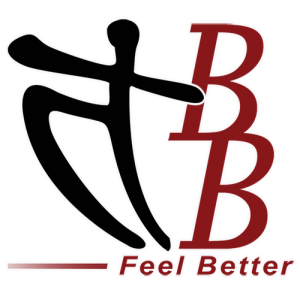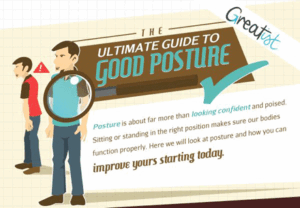Take a Breath!
Did you know that the simple act of taking a deep breath and slowly exhaling can have a profound impact on your over health? We have all heard the advice of others when faced with adversity; “Take a breath!” Now, this may seem like a simple piece of advice, but what if I told you that doing so will actually lessen your anxiety, stress and most significantly, inflammation? Essentially, by doing this one simple action, you can become your own ‘drug dealer’ and deliver a dose of acetylcholine, a neurotransmitter released into the blood stream, that will lower your heart rate, blood pressure, and most importantly, levels of cytokine proteins production. Cytokines have been found to induce typical symptoms of depression. Clinical and experimental studies indicate that stress and depression are associated with the up-regulation of the immune system, including increased production of pro-inflammatory cytokines. Therefore, some cases of low mood, low energy, and lack of motivation may be due to elevated levels of cytokine proteins.
Something as simple as taking a few deep breaths can be beneficial to lowering inflammation, which in turn, leads to lowering painful symptoms and improvement of overall feelings of well-being.
The vagus nerve, also known as the ‘wandering’ nerve. Vagus means wandering in Latin. This nerve has multiple branches that diverge from two thick stems rooted in the cerebellum and brainstem that wander to the lowest viscera of your abdomen touching your heart and most major organs along the way. The vagus nerve is the prime component of the parasympathetic nervous system which regulates the “rest-and-digest” or “tend-and-befriend” responses. On the flip side, to maintain homeostasis, the sympathetic nervous system drives the “fight-or-flight” response. A higher vagal tone index is linked to physical and psychological well-being. Conversely, a low vagal tone index is associated with inflammation, depression, negative moods, loneliness, heart attacks, and stroke.
Taking a deep breath followed by a slow exhale will stimulate the vagus nerve, therefore reducing “fight or flight” responses in the nervous system and lowering biological markers for stress as well as inflammation. In a time where we are overmedicated and there are dependencies on pain reliving drugs, scientist have successfully used vagal nerve stimulation implants on people with chronic pain. The results have shown to have significant impact on patients with Rheumatoid Arthritis (RH) and may have a larger impact on the treatment of diseases such as Alzheimer’s, Parkinson’s and Multiple Sclerosis.
Recently, an international team of researchers from Amsterdam and the United States conducted a clinical trial which demonstrates that stimulating the vagus nerve with a small implanted device significantly reduced inflammation and improved outcomes for patients with rheumatoid arthritis by inhibiting cytokine production.
Kevin J. Tracey, president and CEO of the Feinstein Institute for Medical Research and the person who discovered the inflammatory reflex, said,
“This is a real breakthrough in our ability to help people suffering from inflammatory diseases. While we’ve previously studied animal models of inflammation, until now we had no proof that electrical stimulation of the vagus nerve can indeed inhibit cytokine production and reduce disease severity in humans. I believe this study will change the way we see modern medicine, helping us understand that our nerves can, with a little help, make the drugs that we need to help our body heal itself.”
So, the next time life has you stressed or anxious, try taking a few deep breaths whenever time permits (we are talking seconds) and you will see an immediate change in your overall mood and outlook and therefore be better equipped to handle situations. The more frequently you find the time to do this, the better your overall well-being can be managed.
Ready to #feelbetter?
You're just a click away from a wicked good massage!
-

60 Minute Massage Gift Card
$170.00 Add to cart -

90 Minute Massage Gift Card
$255.00 Add to cart -

Mini Aer Small Room Air Purifier
$149.00 Add to cart -
Sale!

Thera-Pearl Sports Pack/Hot Cold
Original price was: $14.99.$12.99Current price is: $12.99. Add to cart -

3 Somadome Sessions Gift Card
$135.00 Add to cart -

TheraBand CLX Connective Loop
$14.99 Select options -

6 Somadome Sessions Gift Card
$270.00 Add to cart -
Sale!

Biofreeze
Original price was: $14.99.$12.99Current price is: $12.99. Add to cart
Passion Mountain
I was at an event recently and was asked by somebody how I could STILL be so passionate for what I do. He said, “What I mean is that you talk about what you do with the passion of child flipping through a new pack of baseball cards. I wish I was that passionate about…
Read MoreFish You Should Scale Back On
New Englander’s love their seafood and we deepen our love affair every summer when our favorite crustaceans, ‘lobstah’ is a plentiful. But what is the best seafood for us and what are the ones that we should be staying away from regardless of how yummy they may be? Monterey Bay Aquarium has combined data from…
Read MoreSports are a Great Metaphor
It’s no secret that my life has always revolved around athletics. From my early days playing pop warner football, through my college years of lacrosse and on into the various community leagues since, being part of a team has always been where I feel most comfortable. What I enjoy most about being part of a…
Read MoreWhat is an Expert?
“An expert is someone widely recognized as a reliable source of technique or skill whose faculty for judging or deciding rightly, justly, or wisely is accorded authority and status by their peers or the public in a specific well-distinguished domain.” – Wikipedia This past month I flew to Atlanta to present a few classes in…
Read MoreThe Power of a Hug
Originally Posted 5/1/2014; following the 1 year anniversary of the Boston Marathon Bombings and our mission to rebound after these horrible attacks on our city. We helped orchestrate the ‘One Run for Boston’; a 3328.2 NON-STOP running relay from LA to Boston, raising over $500K for the victims and survivors of the events of 4/20/2013.…
Read MoreTips from the Table
Without fail, every marathon season, I am asked by my patients, what kind of advice I would offer up to them as they prepare to run the Boston marathon. I first admit that I have never (nor will ever) run a marathon, but given my unique insight of spending 1000’s of hours alone in a…
Read MoreShoulder Impingement
The glenohumeral joint is a highly complex articulation. It has the greatest range of motion of any joint in the body. However, its increased motion occurs at the expense of stability, requiring the soft tissues to play a more critical role in maintaining joint integrity. As a result of increased mechanical demands, numerous soft-tissue injuries…
Read MoreTrain, train, train. Train of fools.
In my seventeen years as a massage therapist, I am still amazed by some of the things I see in my office. Being situated 1/10th of a mile from the finish line of one of the most prestigious marathons in the world, the Boston Marathon, we see more than our fair share of runners coming…
Read MoreAchilles Tendon Disorder
Achilles Tendon Disorder Massage therapists see many clients with active lifestyles. Running, jumping, dancing, climbing, or any number of other activities can put serious stress on the Achilles tendon (AT). AT disorders also can contribute to biomechanical disorders in the foot and lower extremity. That is why it is important for the massage practitioner to…
Read More


